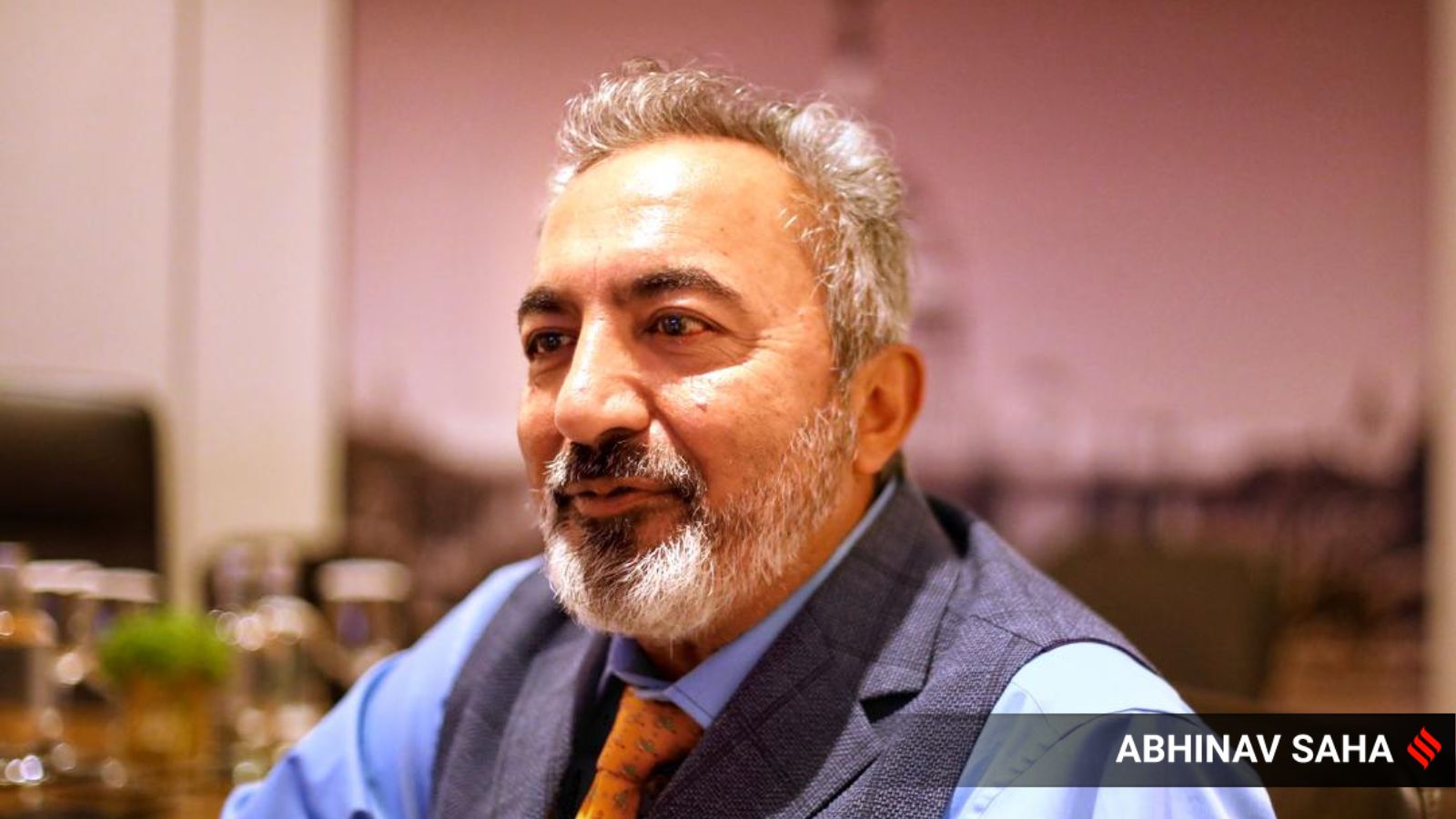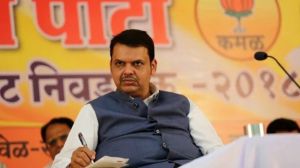Democratic Congressman Ami Bera, who represents Sacramento in the US House of Representatives, the heart of California, which has been reeling under President Donald Trump’s H-1B order, is leading a Congressional delegation to India to meet with government officials, political leaders, and business executives this week.
In an exclusive interview, Bera says that decisions like those on the H-1B visa fee don’t help India-US ties, and seem to be the doing of those like Peter Navarro, who don’t like India. He adds that since PM Modi and Trump have good chemistry, things might help if they meet. The White House can’t equate India and Pakistan, and the US played a supporting role but couldn’t have affected the ceasefire, he also says.

Edited excerpts:
Q: What do you make of the H1-B visa order, which was announced in the Presidential Proclamation this week?
Ami Bera: I don’t agree with the policy because it’s actually going to hurt American companies. These are workers who are filling vital roles and positions. Hiking visa fees to $100,000 is unheard of for something like this. And just how they rolled out this policy creates a lot of uncertainty, even within the administration. You’ve heard Secretary Howard Luttnick say one thing, and then have to walk it back a few hours later. I’d say, let’s slow down here, let’s think through this.
I hope some of our (American) tech companies sit down with the President and talk about the economic impact it’s going to have, and in the long run, this probably does hurt our companies. It may actually benefit Indian companies, because if you’re a Microsoft executive, and you can’t get the workers you need, you might expand your presence in India.
Q: India has said that it will also lead to a lot of humanitarian crises, and will split families. There’s a huge Indian American community in California that you deal with.
Bera: We just learned about this policy. So, Congress was not informed ahead of time. We’re going to talk to the folks on the various committees in Congress, and ask the administration to provide some clarity. It doesn’t reflect well on American policy. And then, we heard the stories of companies telling their employees to get home to America as quickly as possible.
Story continues below this ad
This is just a chaotic rollout. I don’t agree with the policy, but if, in fact, even if they were to implement this, there’s a way to do this with some warning, some input. I’m not even sure who’s formulating this policy. It sounds like something Peter Navarro would come up with.
Q: Navarro recently had some comments on India, even calling the Russia-Ukraine war as New Delhi’s war. What do you make of it?
Bera: I don’t think rhetoric like that is helpful in the relationship. And if I’m speaking to the Indian side, I’d say just ignore Peter Navarro, except that he’s in the administration. Senior members of the US government should not be making comments like that.
Q: Before the H-1B order, there were also sanctions on the Chabahar port that India has to now deal with. There is already the penalty tariff of 25 per cent that one is trying to deal with. What do you think is happening?
Story continues below this ad
Bera: Yeah, I’m not sure what’s driving this in the last 2-3 months. For almost 14 years, I’ve been in Congress, and the US-India trajectory has been moving in a decidedly positive direction, including during the first term of the Trump administration. There were a lot of real positive movements in the first term, and there are expectations in this term that the US-India relationship will continue moving in that direction. I hope there are honest closed-door conversations. I hope there is real movement.
With regards to Russia-Ukraine, I think there’s a real opportunity for India to demonstrate its diplomatic power. It does have different lines of communication with Vladimir Putin; it does have economic ties with Russia. President Trump does want to try to bring an end to the conflict, but is being frustrated. India can take a bigger role in trying to find a path forward here, and this is a chance for India to demonstrate its power on the global stage.
Q: India has also been the only country that has been slapped with this kind of tariff. China is also buying Russian oil. What do you think was the differentiator?
Bera: China does buy more oil from Russia. It doesn’t make any strategic sense to single out India in this way. Most of us in Congress, Democrats and Republicans, see the importance of India’s economic rise. But we also see the importance of India as a stabilising influence in not just South Asia, but also throughout the Indo-Pacific.
Story continues below this ad
Q: The US House Committee on Foreign Affairs came out with a statement that it (tariffs) doesn’t look like this is about Ukraine. What do you think this is about?
Bera: This is just Peter Navarro, and he just doesn’t like India. My impression is that President Trump and Prime Minister Modi have a very strong relationship, and one of mutual respect. It hasn’t sounded respectful in the last few days or a few months, but it does sound like they had a good phone call last week, and hopefully they’ll have a chance to meet. And that may happen as President Trump comes to India for the Quad Leaders Summit.
We’ve got to get the relationship, the US-India relationship, to a better place, just a trajectory where it was 4 months ago.
Q: Is the Modi-Trump relationship different from the India-US relationship? Despite President Trump’s birthday phone call to PM Modi, there has been a double whammy of sanctions and H-1B on India.
Story continues below this ad
Bera: President Trump can be chaotic at times, and what he says today could be very different from what he says tomorrow. And we’ve gotten used to the fact that we can’t react to everything. But let’s keep our eye on the long-term. The relationship has to last beyond any one presidency. How the Congress views this relationship is equally important.
Q: But are there any consultations between how Congress views this relationship and the White House? Do you know if there are any conversations?
Bera: As I describe the administration, chaotic decision-making, I’m not even sure if those conversations are taking place within the Trump cabinet. In the H-1B (order), Lutnick said these are annual fees, and then they had to walk that back and say it’s one-time. That’s not how you roll out a big policy like this. You think it through, you communicate with Congress, and you have a debate. You’ll hear more members of Congress starting to say, ‘wait a minute, this is going to hurt American companies.’
Q: What do you think of the appointment of Sergio Gor as the new ambassador? Will things change once he joins?
Story continues below this ad
Bera: It’s good that there is an ambassador because having a lead diplomat here could also, hopefully, help them in the relationship. The one positive is he does seem pretty close to Trump, so as he gets to India, understands the dynamics of the relationship, hopefully that’ll be a positive. And then he’ll be in a position to communicate what he’s seeing on the ground here. I don’t suspect he’s an India expert.
As for his additional role as the special envoy for South and Central Asia, this is a position that has not existed before, so I’m unsure what that role is. That’s a question we’re asking the administration to give us a definition: what are the responsibilities there?
Q: There were also repeated statements from President Trump on bringing a ceasefire between India and Pakistan in May.
Bera: After the horrific terror attacks in April, the four days of May were very tense. India and Pakistan seemed on the brink of war, and we’re grateful that they were able to come together and find a path to a ceasefire. America should play a supporting role in this, but at the end of the day, it’ll be up to India and Pakistan. I know President Trump made some statements that caused some heartburn in India. Maybe the special envoy will play a supporting role.
Story continues below this ad
It’s not our place as the United States to lead this. It’s up to India and Pakistan to find and define what a ceasefire would look like.
Q: How do you see US-India ties, vis-à-vis US-Pakistan ties?
Bera: India is on this growth trajectory as one of the fastest-growing economies in the world. It’s a vital strategic partner for us not only in South Asia, but also throughout the Indo-Pacific. Pakistan, on the other hand, is the economy that’s going in the opposite direction. It’s a country that has the most domestic terror attacks, political instability, and is increasingly is lining up with China. So, there are two different countries on different trajectories, and all of us in Congress know our long-term partnership with India is one that could be a defining relationship.
Q: While we speak about India-Pakistan, President Trump made several statements about stopping the war, and India clarified that it does not accept mediation.
Story continues below this ad
Bera: Certainly, we’re aware that Secretary (Marco) Rubio was on calls, talking to the Indian and the Pakistani governments. But it was up to the two governments to decide that there was going to be a ceasefire. We didn’t make the ceasefire happen. I hope we played a supportive role.
I don’t know exactly what’s driving that. Does President Trump want to win the Nobel Peace Prize? I’m not sure he’s going to win the Nobel Prize for us. Pakistan certainly is playing to that desire.
Q: What is the agenda of the delegation you are leading, and who will you be meeting here?
Bera: The goal here, really, for those of us who have worked on the US-India relation for a long time, is that it’s at a bad place. That’s obvious, and I want to get it to a better place. That’s why it was such an important time to be here in India. And then for the four other members of Congress who are with us, this is their first visit to India, so I think it’s important for them.
We’ll be with some leading CEOs, and then on the defence side, we do worry about the Indian Ocean region. We see some of the Chinese incursions in that area. We want to strengthen the ties there and work together with India to make sure not to find conflict with China, but to make sure there’s freedom of navigation for maritime security again.
Q: Going forward, what’s the outlook for the India-US ties?
Bera: We’re only in the first quarter of the 21st century, and this is not going to be led by America. It is going to be a century where we’re really true partners: India, the US, Europe, Japan, Korea, Australia, democratic nations, and our form of government. And we have to work together.
Q: Do you think that for a little bit of breakthrough to come, despite the phone call and social media posts, the two leaders have to meet once?
Bera: Whether Prime Minister Modi goes to the US or President Trump comes here, the two leaders are fond of each other. I genuinely believe they like each other, and have some respect; this is a hiccup, and I don’t know how much of this is coming from the President vs folks around him, like Navarro and Luttnick, who may not be as fond of India. A meeting between the two leaders would be positive, not negative.









